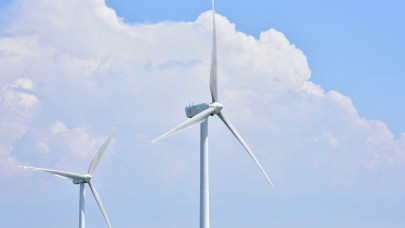According to a report, France had the second highest emissions from private jets, with 383,061 tonnes of CO2 emissions.
As rail services improve, more routes could be added such as those between Paris Charles de Gaulle and Lyon and Rennes as well as journeys between Lyon and Marseille. They currently don't meet the criteria for the ban because trains to airports in Paris and Lyon don't allow passengers to arrive early in the morning or late in the evening.
Connecting flights are unaffected by the new law.
Train services must meet certain conditions to replace flights. The new law specifies that train services on the same route must be frequent, timely, and well-connected enough to meet the needs of passengers who would otherwise travel by air - and able to absorb the increase in passenger numbers.
The changes are part of France's 2021 Climate Law and were first proposed by France's Citizens' Convention on Climate – a citizen's assembly tasked with finding ways to reduce the country's carbon emissions. When the measures were first announced, they were contested by the Union of French Airports (UAF) as well as the European branch of the Airports Council International (ACI Europe).
This prompted an in-depth investigation by the European Commission into whether the plan could go ahead or not.
A European Air Services Regulation article states that a member state may, "where there are serious environmental problems […] limit or refuse the exercise of traffic rights, in particular where other modes of transport provide a satisfactory service”. The Commission gave its approval in April this year, making it the first time this article has been invoked by an EU member state.
Sarah Fayolle, Greenpeace France transport campaign manager, told Euronews that there were both “negative and positive aspects” to the European Commission's decision given that only three routes are affected.
A report from Transport and Environment (T&E), the European Federation for clean transport, found that private jets are up to 14 times more polluting than commercial flights per passenger mile, and 50 times worse than trains.
Despite urgent calls from campaigners, France is unlikely to impose a total ban on jets.
Heavy taxation and restrictions are the most likely measures to be introduced. Companies could also be forced to publish details on their use of corporate aircraft, for greater transparency.
84,885 private jets took off from France in 2022, making it second only to the UK for the number of take-offs.
France isn't the only country getting things right in this regard, of course. The bike subsidy scheme is based on the hugely successful rollout of e-bikes, scooters, and mopeds in Lithuania, where, since 2020, people have been given up to €1,000 for handing in their old vehicles. This can even go towards public transportation credits.














